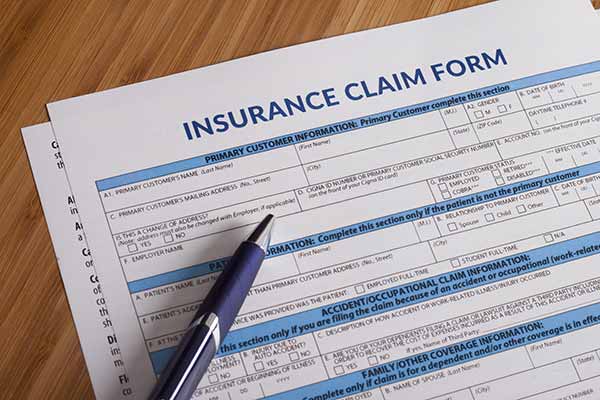Insurance is everywhere. You can insure something as large as your home or business or as small as a single piece of jewelry.
When you pay a premium to have insurance coverage, you expect that your insurance company will be there for you when your property or other assets are damaged, lost, or stolen. If you have liability insurance coverage, you also expect that you will have someone there for you when you need help with defending a lawsuit.
Unfortunately, insurance companies do not always work with you as you think they should. Insurance companies are businesses, and they sometimes put profits ahead of serving their customers.. In some cases, that can mean that they deny insurance claims when you should have coverage—it happens, but you have legal options to address this type of situation..
You make a “claim” with your insurance company when you let them know about a loss that you think should be covered under your insurance policy. As soon as you take action and let your insurance company know about the claim, they are required to investigate the claim and give you a decision about whether they will cover the claim..
“Covering” the claim generally means that the insurance company will make a payment to you or a third-party for the loss.. In the case of liability insurance, it will often also mean that they will provide you with a legal defense if someone has asserted a legal claim against you.
A bad faith insurance claim arises when the insurance company fails to carry out its duties of investigation and paying legitimate claims. Problems with the investigation could be things like delay or incompleteness. They may only pay you a portion of your claim when you should have received more, for example. A bad faith insurance claim lets you start a lawsuit against your own insurance company for failing to carry out their duties to you.
Just like there are many types of insurance, there are also many types of insurance claims.. A bad faith insurance claim can arise in virtually any situation where you have insurance.
Many claims focus on issues such as disputes about the amount owed, missed payments, misrepresentation about coverage, or how much the coverage should pay. Contractor insurance disputes can result in a bad faith claim against the insurance company .. Other Orlando insurance claims focus on the specific type of insurance at issue, such as:
You might also have a dispute with a specific Florida public adjuster, too.
In Florida, there are two overarching types of bad faith insurance claims. The type of case that you might have deals with your role in relation to the insurance company involved.
A first-party claim arises between the insurance company and its insured—the person who actually pays the policy premiums.. Failing to pay settlements, approve coverage, or investigate claims can all fall within this type of claim.

A third-party bad faith insurance claim arises against an insurance company that did not insure you. Instead, you are someone who was harmed by their insured. Third-party claims deal with liability insurance.
A third-party claim arises when the insurance company does not properly investigate your claim and resolve it within a reasonable period of time. Examples that might trigger a third-party bad faith claim include things like:
Third-party claims can be harder to prove because of the disconnect between the insurance company and the injured person.
Insurance companies have very experienced attorneys on their side to deal with any allegations that you might have.. You can fight back with seasoned and professional counsel of your own.
Call the VG Law Group, LLP, for more information about how we can help you fight back against an insurance company that is being unreasonable, unfair, or unethical.